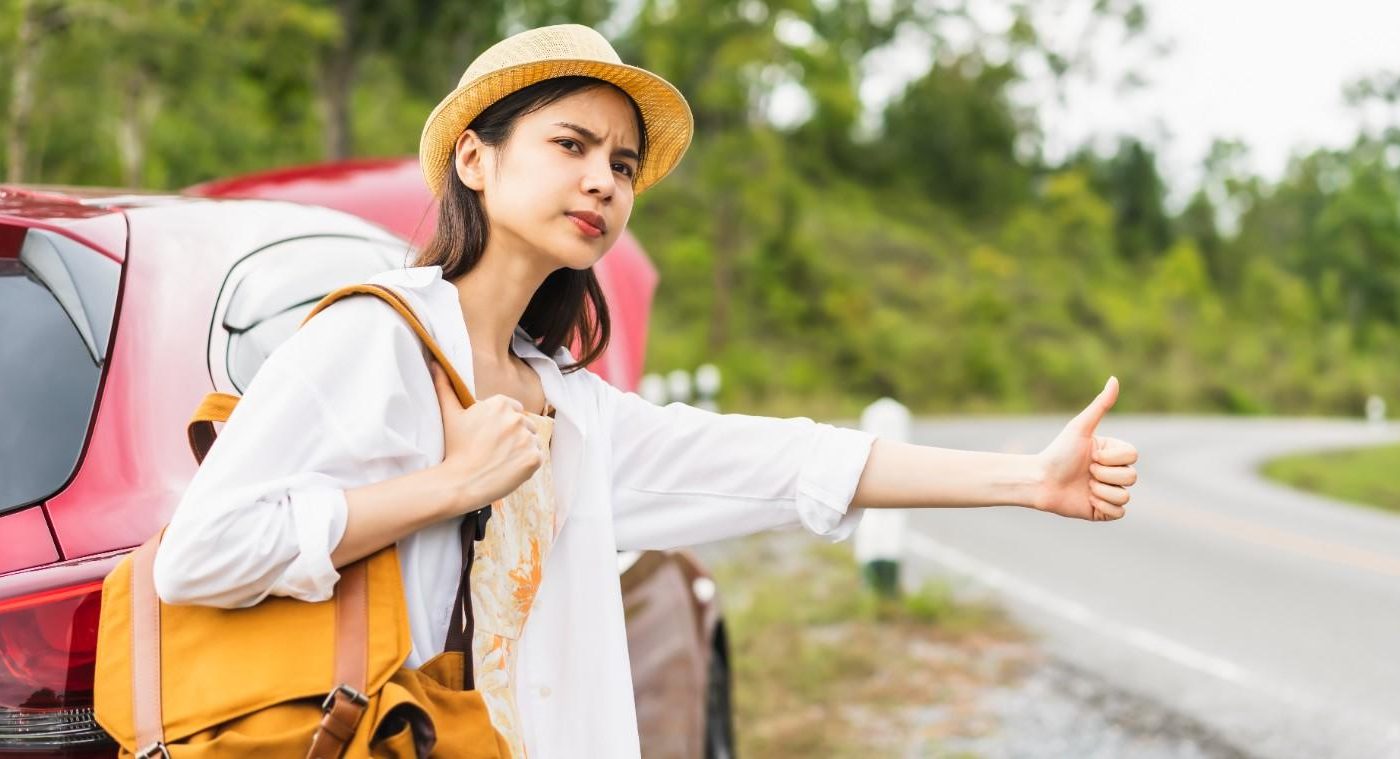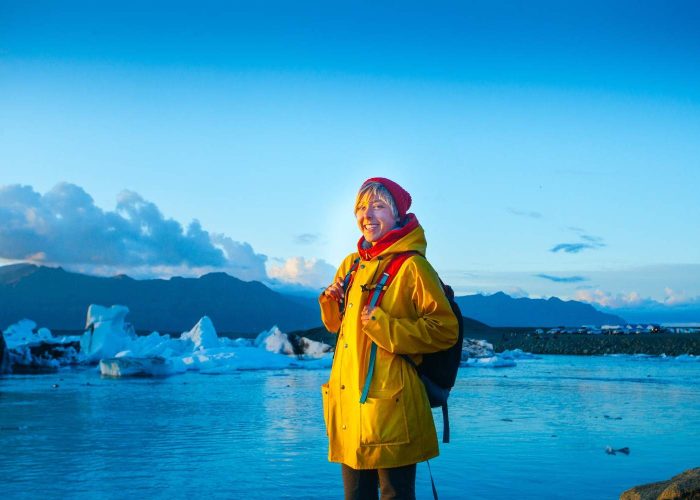Travel is one of life’s greatest teachers, it introduces you to new places, cultures, and perspectives. Yet with adventure comes responsibility. Whether you’re exploring a crowded city market or hiking through quiet countryside trails, being aware and prepared is what transforms a good trip into a great one.
While excitement drives every journey, safety ensures you come home with memories instead of regrets. From managing your belongings to understanding local customs, these important travel safety tips are designed to protect your experience while letting your curiosity roam free.
Let’s explore what every traveler should know before setting out into the world.
1. Research Before You Go
A secure travel starts way before your aircraft takes off. Conducting proper research assists you to know not only about sightseeing but also about the possible dangers of where you are going.
Get acquainted with local legislations, emergency numbers, weather, and cultural requirements. Also visit the travel advisories on the website of your government and find out the review of the recent travelers to understand the safety concern in the area.
Being prepared does not mean being afraid of it, it means being empowered. The awareness will ensure that you travel smarter and will respond in a calm way whenever caught in a situation you have never encountered.
2. Keep Your Documents Safe and Accessible
The most valuable things you have when you are outside your country are your passport, ID, and travel insurance documents. Their loss can make the dream vacation a nightmare in terms of bureaucracy.
Creating digital and physical copies of crucial documents is one of the greatest rules of travel safety that should be always remembered. Keep originals of the store in one of the hotel safes and carry no copies on an expedition. Send yourself scans of your emails in case of theft or loss.
It is also prudent to have the contact of the nearest embassy or consulate of your country on note. The hours of stress can be saved with just a few minutes of organization in the future.
3. Stay Aware of Your Surroundings
Most of the time, tourists are victims of petty crimes just because they seem to be distracted. Be vigilant but not worried by conducting situational awareness.
Do not walk and have headphones in a strange place or look at your phone every minute at the bus terminal. Keep an eye on people, rely on your intuition and when something is amiss, go to a busier area or one that has light.
Always bear in mind awareness is your best defense. Paying attention to your surroundings makes you enjoy the surroundings you are in, as opposed to being afraid.
4. Blend In with the Locals
Being a tourist may draw the wrong attention. One of the easiest essential travel safety measures is dressing decently and respectfully as per the norms of the locality one is visiting.
Some nations even leave you to theft just because of the costly jewels or conspicuous accessories. Attempt to adapt and follow the ways the locals dress and act. This will not only ensure your safety, but will also assist you to relate more with the culture.
Being conscious and humble in your movements, you gain respect and relaxation of mind.
5. Secure Your Belongings at All Times
One of the most prevalent travel problems in the world is petty theft. Although one cannot know, one can avoid it.
Wear anti-theft backpacks, or crossbody bags, in which zippers are held tightly to your body. Always keep your wallet, phone and passport in different and secure locations. In transit, never hang your things on your back, have them in front of you.
When eating out, wrap your bag strap on your chair leg or sit on your lap. These are little things but they are the foundation of some great travelling safety tips that keep you safe in all the little times.
6. Be Cautious with Technology and Wi-Fi
Free Wi-Fi is convenient, and at the same time, it is one of the simplest methods of hackers to gain access to your personal information. Do not log in to your bank accounts or make any online purchases on the public Wi-Fi.
To secure your information, it is possible to use a VPN (Virtual Private Network) to encrypt your online activities. It is always advisable to log out of any computer or network once you are through using it.
Travel safety is not just physical security but also data security in the digital era.
7. Stay Hydrated and Prioritize Health
Amidst sightseeing and excitement, travelers often overlook their physical health. Drinking enough water, eating balanced meals, and resting properly are fundamental yet often ignored important travel safety tips.
Before your trip, check if you need vaccinations or medications specific to your destination. Carry a small first-aid kit with essentials like painkillers, antiseptic wipes, and bandages.
If you’re visiting high-altitude or tropical regions, take precautions against dehydration, sunburn, or altitude sickness. Your health is your passport to freedom, take care of it.
8. Trust Transportation Wisely
There is a significant difference in the level of transportation safety between nations. Ride with trusted taxis, checked ride-hailing applications or government-provided transportation.
In case you are trying to use long distance buses or trains, bagpacks should be kept tight and zippers should be locked. When traveling at night alone, it is advisable to avoid going at night in places that one is not familiar with.
When you are renting a car, make yourself acquainted with its local traffic regulations and driving traditions. Minimal decision-making could lead to a massive change in the event of remaining safe on the road.
9. Choose Accommodation with Safety in Mind
Where you stay can define how secure you feel. Before booking, read reviews and ensure your accommodation is in a well-lit, populated area.
Opt for hotels or rentals with 24-hour front desks, secure locks, and visible emergency exits. Avoid sharing your room details or travel plans with strangers.
Upon arrival, locate emergency exits and know the building layout, a quick mental map can be invaluable during an emergency. Simple awareness like this is one of the most important travel safety tips often overlooked by even experienced travelers.
10. Protect Your Finances
Going without access to money in a foreign country can easily get out of hand into panic. Always make sure you diversify the way you bring money along with you, a combination of cash, debit/credit cards and digital payment methods offers balancing and backup.
Lay emergency cash aside with your main wallet. Before traveling, inform your bank in advance to block your card as it means something suspicious.
Where an ATM is used, select the kind of machines that are within banks or shopping malls to ensure greater levels of security. Handle money very subtly and never show a big amount of money in the street. Budgeting is not financial awareness, but saving your independence and playing around.
11. Stay Connected and Communicate Plans
Always inform someone about your intentions before going out there in the day, more so, when traveling alone. Write down your itinerary, accommodation address and emergency contacts to a friend or family member that you trust.
Location-sharing apps can also be used by modern travelers to be even safer. It is nothing about paranoia but it is about being ready.
In case your phone battery runs out, then you should have a little card in your wallet with the name and address of your hotel. These are just but very useful important travel safety tips that make sure you are located in case of technological breakdown.
12. Respect Local Customs and Laws
Ignorance of the law is never an excuse, especially abroad. Different cultures have different expectations regarding dress, public behavior, and photography.
Always ask before taking photos of people or religious sites. Avoid discussions about politics or religion unless you fully understand the context.
Following these important travel safety tips shows respect, prevents misunderstandings, and builds positive connections with locals. Remember: cultural sensitivity is as crucial to safety as any precaution you take.
13. Be Cautious with Food and Water
One of the best pleasures of travelling is trying new food- stuff, though, of course, it may be dangerous, when you are not attentive. Dine in good establishments where people have freshly cooked food and it is hot.
Bottled or filtered water should be used in the countries where there is doubtful water quality. Do not consume raw vegetables and street food when your stomach is sensitive.
This modicum of self-control can cushion you against bad food-related diseases that will spoil whole vacations. Smart eating is among the least famous but extremely significant important travel safety tips that any globetrotter is to keep in mind.
14. Know Emergency Procedures
Emergencies can happen anywhere, knowing how to respond keeps panic at bay. Research local emergency numbers, as they differ by country. In many regions, 112 or 911 equivalents connect you to local responders.
Carry a small emergency card in your wallet listing your name, blood type, allergies, and contact info. If traveling with companions, agree on a meeting point in case you get separated.
Preparation transforms chaos into calm, making it one of the most life-saving important travel safety tips to adopt.
15. Stay Calm and Trust Your Intuition
Finally, always bear in mind that your instincts are your best guide. When something is not right, a situation, a human being or even a place, go away.
A good number of travelers trivialize their intuition but it is the initial defense in many instances. The real values of a sound traveller are calm, conscientious and responsive.
Travel safety is not about never getting into an adventure, but doing so with a smart and planned step.
Final Thoughts
Every journey holds the potential for wonder, but only when balanced with awareness. Following these important travel safety tips doesn’t restrict you; it empowers you to travel freely, confidently, and responsibly.
Every destination has something to teach, and safety is the cornerstone that will allow you to enjoy it to the fullest, no matter how busy the city is or how peaceful the mountains are.So grab your bags, think seriously and enter the world with open eyes and a prepared heart. The real adventure is not only about where one goes, but it is also about the safe journey back in order to narrate the narrative.




